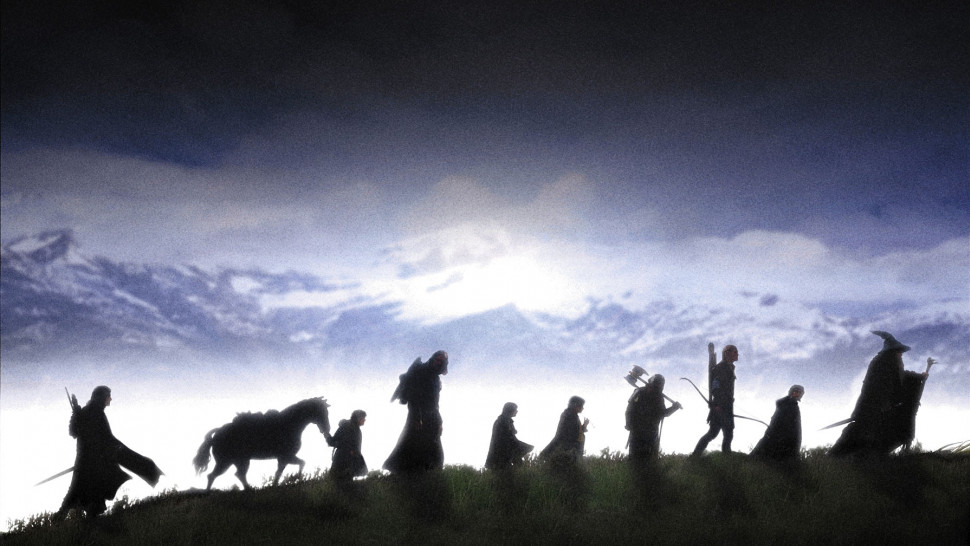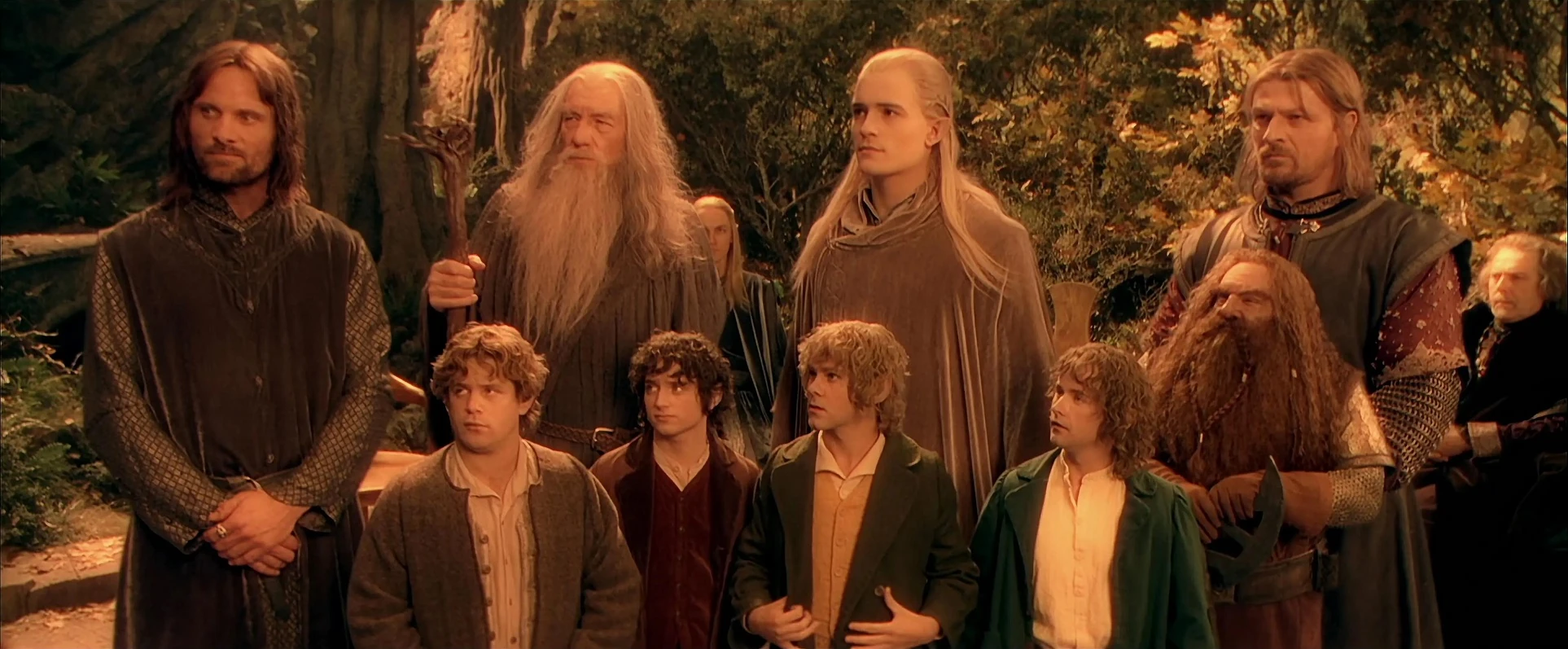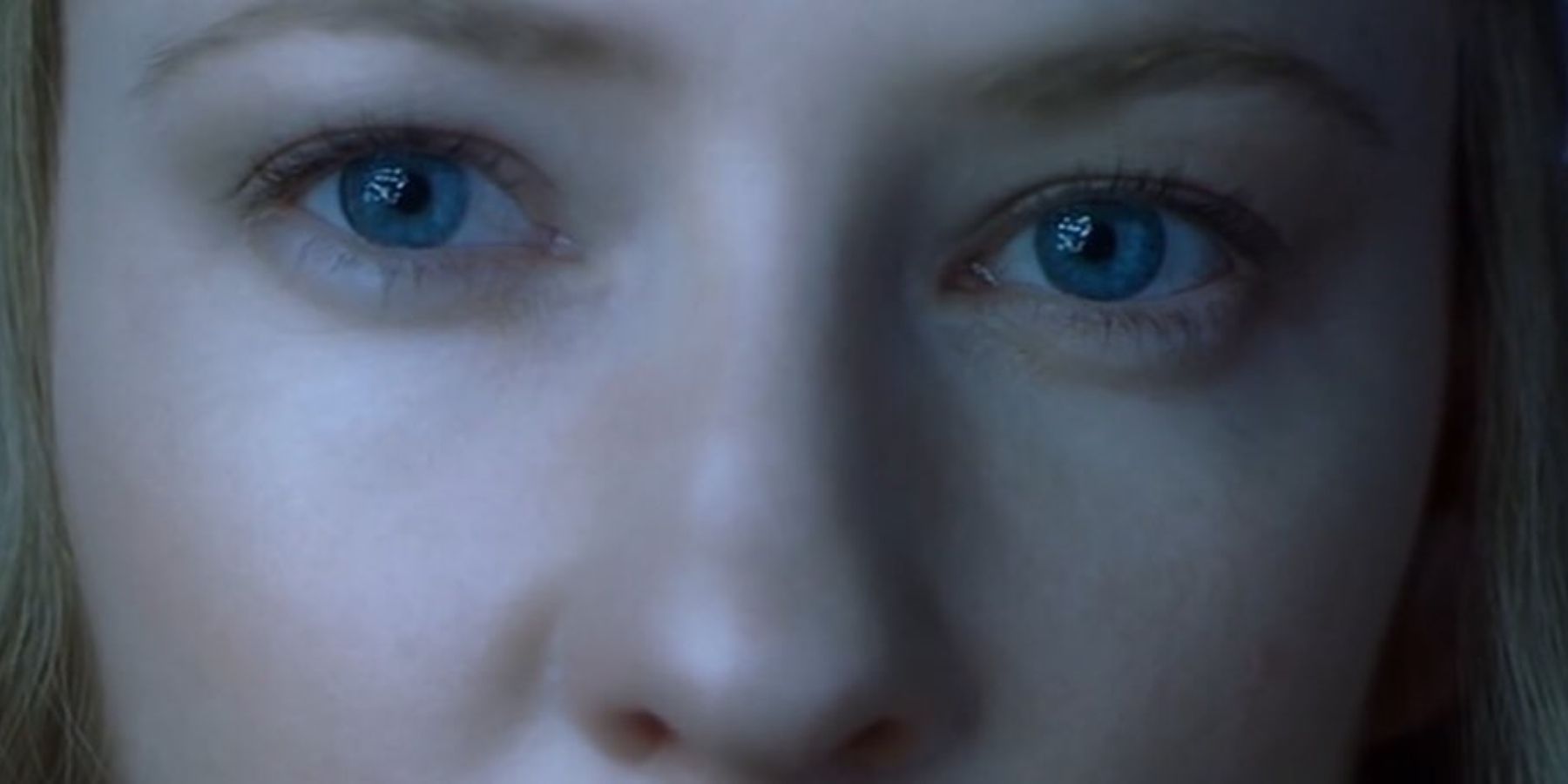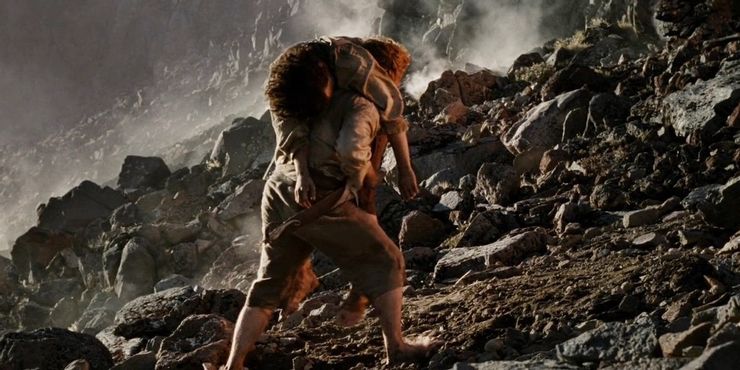
This corner is going to have a more personal tone compared to the rest of my texts. I believe I have to do it so in order to fully convey the feelings that have governed me these last two months – culminating in the rewatch of this fantastic triad of movies. And precisely because of their subtle and ephermeral, almost miraculous quality, they are worthy to be crystallized to be reconsulted in the years to come, hopefully to induce an eventual Proust effect to future me.
Autumn 2023 has been Tolkien time for me. Back then when the Lord of the Rings movies came out I was 7-10 years old, and my mother (who had read the books when she was young) was excited to take me to the movies with her. Of course, I was absolutely amazed by them, and for the Christmas that year my parents gave me the LOTR Trilogy, the Hobbit and The Silmarillion as presents. Of course, Professor Tolkien told charming stories, but as a kid with few experience in complicated texts and unability to appreciate flourishing proses, metaphores and such, the content of his books kind of slipped my mind right after reading them. I continued liking the Middle Earth setting due to my contact with the movies, video games and such, and with time and life going on all this ended staying in the backbone of my mind as a fond memory, but without any need to be actively resurrected.
On a parallel side, I have a particular thirst of reading about religions and myths – On a VERY deep, academic level. The story of why I suffer this thirst belongs to other, more favourable times, so please just focus on the fact that I frequently and avidly read treaties, ancient sacred texts and epics, brainy analysis and comments and other PhD-tier related stuff concerning theologies, anthropolgies, myths, philosophies, psychologies, etc. They bring an enormous joy to my life.

Fast forward to October 2023. A happy coincidence in the internet provoked a big fateful click in my brain. Stumbling into a reddit post discussing the famous Problem of Evil and other theological paradoxes in the context of The Lord of The Rings started a mechanism of thought. Suddenly, my thirst of human depth and spiritual heritage forcefully pulled LOTR out of the depths of my backbone. I immediately, frenzifully, took my old copy of The Silmarillion – as it is Tolkien’s work most similar to a mythology cycle – and there is where the fun begins.
After month and a half of miraculous, pure, unfiltered enjoyment and thanking a couple of times for these coincidences in life, my childhood friend texts me out of the blue: “They are screening The Lord of the Rings in the cinema, for some reason. I am considering going”. Naturally, my reaction was something akin to this. Tell me, WHAT WERE THE POSSIBILITIES OF THIS THING HAPPENING??
So, each Wednesday three weeks in a row, I watched one of the modern classics that are Peter Jackson’s The Lord of the Rings in the dark hug of a screening room. Like I have mentioned in previous of my corers, sometimes it is certainly difficult to reach new insights over fictions one had already well-experienced when younger – nostalgia is a great performing pair of pink-coloured glasses. However, I was pleasantly surprised that I could not only get a new, well-rounded view over these films almost like I still was a blank slate, but furthermore, this new view could perfectly coexist with my memories from when I was a child, and my raw mental associations with certain momnts and atmospheres.

I am adamant with the opinion that The Lord of the Rings was released in a crucial moment. The gateway years between the 90s and the first moments when the 2000s started showing traits of their own cultural identity allowed this trilogy to benefit from both currents. It is 90s enough to drink from superpowers like Braveheart, showing a tangible majesty and benefiting from the maturity of the historic fiction style that was achieved in these years, and 2000s enough to avoid traditional sword-and-sorcery tropes, efforting to achieve its identity as a standalone work – even if being part of a cultural current. Therefore, it shows a warm flavour, characteristic of the times where genre works strived for the peak in their field instead of trying to deconstruct it, and a fresh, invigorated style coming from the thirst for novelty.
The Fellowship of the Ring is rightfully the most 20th century one of the trio (and not only visually speaking). The fashion of its structure, heavy in adventure, events and plot twists in a setting as important as its characters, recalls flavours akin to Willow or some other charms by Steven Spielberg or Chris Columbus. Naturally, The Return of the King would be the most 21st century of the trilogy, with its action-packed grandiosity that slows story in favour of visual wonders and prop prowess, while The Two Towers maintains its condition as intermediate with somber, nostalgic dignity sharing antics of both currents. And I ask myself, how much did The Return of the King influence posterior works of this century so we can recognize it as the pivotal stone for fantasy fictions of today’s fashion?

A very remarkable thing I also want to mention is the casting. I verily get the impression that the actors were selected based on their affinity with their characters and not their acting prowesses. How would it be then possible that you can forget you are watching a play and believe the existence and grow fond of a character you have only seen for an hour before? I like the example of Ian McKellen’s Gandalf. Only with one shot showing his eyes and the way he gazes you can somehow subconsciously understand that this is a merciful, loving character you want to walk along with, albeit terribly mighty and mysterious. I was fearing that with my rewatch I would not be able to forget that I was watching a film, since with the years passing I have become more conscious of the dimensions of reality (understadably!); so I am definitely happy to still be able to drown in it. And probably, the lack of superabundance of digital effects in favour of props surely helps in the immersion.
And lastly, in order to connect again with the metatopic that started this Corner, I also want to comment on the blending of the films with Tolkien’s work. Following his view akin to past epics, The Lord of the Rings fulfils the very human need of heroes in existence, exemplar heroes with grandiosity and virtue whose accompainment can inspire us and make us aspire to higher peaks in our mundane lifes. And in order to perfectly deliver that vision, the construction of the world needs to excel and make the deeds of the characters in their context believable for any kind of audience. People experienced in the Middle Earth will surely recognize even minimal details that appear in other literary works, but that do not baffle the newcomers, who can equally understand it and have a good watch. Non-narratively we are presented a world in clear decadence and on the verge of doom, in which the deeds of the heroes seem perfectly orchestrated to deliver the appropriate message, while narratively we get action, adventure and character growth.

And as heavy and dense as this may sound, it is constantly shown that all this considerable weight can also be carried with simplicity, laughter and nonchalantness. These may be virtues we all can strive to achieve, and are more than enough to make the world lighter and safeguard it as our home. Our place to return to.
Delving into the Middle Earth for another time, after so many years, by almost fate, revealed me that Professor Tolkien loved his work. I could feel that these stories, these songs, descriptions of deeds of Kings and Heroes… were just words of love. What I had the utmost privilege of experiencing these months was his joy, the very reason that made him go forward every day. The love for human heritage. His ultimate deed of love was carrying the cultural weight of millenia, the spirit of humanity, the souls, shadows, wishes, ideas and stories of many long forgotten before us and shaping it in a refined content with his own signature. Tolkien can be considered as the inheritor of all storytellers and skywatchers before him; and he is probably the last representative of that particular kind of people who just carried the heritage of their people forward for the further generations, condensed in a single vertex.
Peter Jackson’s trilogy of films show and visibilize the love that is entwined in Professor Tolkien’s life deed. There is no way that such a tasteful, superb filmic work cannot be also a work of passion and love.
